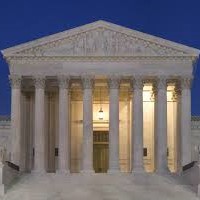 Other organizations have expressed support for Kavanaugh, including the religious liberties organization First Liberty, whose president, Kelly Shackelford, told the National Review, “Brett Kavanaugh also volunteered his time almost 20 years ago to work on a religious liberty case at the U.S. Supreme Court with me and Jay Sekulow. He has been committed to the Constitution and religious liberty for a long time.”
Other organizations have expressed support for Kavanaugh, including the religious liberties organization First Liberty, whose president, Kelly Shackelford, told the National Review, “Brett Kavanaugh also volunteered his time almost 20 years ago to work on a religious liberty case at the U.S. Supreme Court with me and Jay Sekulow. He has been committed to the Constitution and religious liberty for a long time.”
(Heather Clark – Christian News) Trump U.S. Supreme Court nominee Brett Kavanaugh, who has served on the D.C. Circuit Court of Appeals for the past 12 years, once stated during his confirmation hearing that he would “follow Roe v. Wade faithfully and fully” as it is “binding precedent.”
He had been asked by Sen. Chuck Schumer during the 2006 hearing if he believes Roe v. Wade is “an abomination.”
“On the question of Roe v. Wade, if confirmed to the D.C. Circuit, I would follow Roe v. Wade faithfully and fully. That would be the binding precedent of the court,” Kavanaugh replied. “It’s been decided by the Supreme Court.”
Schumer then twice sought to obtain Kavanaugh’s personal view of the Supreme Court ruling, to which Kavanaugh replied that he did not feel it would be appropriate to state his own position.
“I’m saying that if I’m confirmed to the D.C. circuit, senator, I would follow it. It’s been reaffirmed many times, including in Planned Parenthood v. Casey,” he said.
Kavanaugh did so last October in the case of Garza v. Hargan, which came before the D.C. Circuit. While he strongly disagreed with his colleagues who allowed an illegal immigrant teenager to obtain an immediate abortion, he dissented on the grounds that the girl should have been placed—as the government had requested—with a guardian (known as a sponsor) before making a final decision about obtaining an abortion.
He referred to abortion as being a “right” under Roe v. Wade in noting that regulating that “right” is permissible according to the nation’s highest court. He pointed to “the many majority opinions of the Supreme Court that have repeatedly upheld reasonable regulations that do not impose an undue burden on the abortion right recognized by the Supreme Court in Roe v. Wade.”